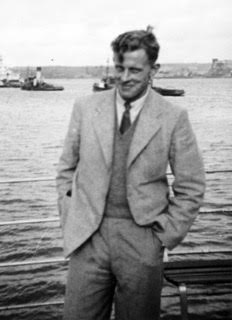Kate Winslet in Budleigh Salterton?
Kate Winslet at the 2017 Toronto International Film Festival Image credit: Wikipedia
Could we be about to see this Oscar-winning English actress being filmed on Marine Parade for a biopic which will include a host of other stars including Marion Cotillard and Jude Law?
A US Army Official
Photograph showing Lee Miller as a war correspondent in 1943. Image credit:
Wikimedia
Due for release probably
in 2023, the film ‘Lee’ will have Kate Winslet in the title role portraying
episodes in the life of Lee Miller, the American photographer and photojournalist who started her
career as a fashion model in New York in the 1920s before becoming a war correspondent
for Vogue magazine. Events
that she covered in the 1940s included the London Blitz, the liberation of
Paris and the concentration camps of Buchenwald and Dachau.
But in the summer of 1941, according to a report by Britain’s Special Branch, she was spotted spending a short holiday in one of Budleigh’s most prominent sea front houses.
W.F.R. Macartney in 1946. Image credit:
www.theauxiliaries.com
This was the home of the notorious ex-convict and left-wing sympathiser Wilfred Macartney, who had been jailed in 1927 for trying to sell secrets to the Soviet Union. MI5 officers noted that in addition to Lee Miller there were four women staying at the house in June 1941, including the wife of Harry Pollitt, leader of the British Communist Party.
Macartney’s book Walls Have Mouths was praised by, among others, George Orwell Image credit:www.orwellsociety.com
Macartney had been convicted of various charges
under the Official Secrets Act at a high-profile trial at the Old Bailey in
January 1928. He had received a sentence of ten years, with two years’ hard labour.
On his release from prison, in 1936 he published a 440-page book, Walls have Mouths, which described his
time in Parkhurst and other prisons.
Sir Edward Montague Compton Mackenzie, OBE (1883-1972)
in 1914. Image credit: Wikipedia
Yet, according to the book’s prologue by the author Compton Mackenzie, Wilfred Macartney could also boast of having fought for his country in World War I, later escaping from German captivity. During an attack at Cambrai on 11 September 1918 he was badly wounded and taken prisoner, all the officers except for himself being killed. Transferred to Parchim in Germany, he jumped out of the train a few miles from Aachen on 17 October and set out to walk to Holland. However he mistook his way and apparently ended up in a Belgian town where he was sheltered by the mayor.
From here he made his way to Britain, reaching London shortly before the signing of the Armistice on 11 November. Bizarrely he was court-martialled, honourably acquitted and received a Certificate of Merit from the Army Council for his escape.
That at any rate was Wilfred
Macartney’s eventful experience of the 1914-18 War, as recounted to Compton
Mackenzie. However it is clearly difficult to verify the facts. By July 1919,
Mackenzie noted that Macartney was drinking far too much for his age, and his
life changed for the worse as he ran up large debts. In February 1923 he
married an Irish woman, Martha Jane Warden, but domestic tranquillity continued
to elude him. In February 1926 he
appeared at the Old Bailey following a smash and grab attempt at a
L-r: Wilfred
Macartney, Dave Springhall, Peter Kerrigan, Tom Wintringham and Frank Ryan in
February 1937 before the Battle of Jarama, east of Madrid, during the Spanish
Civil War. Three of these men photographed with Macartney had prominent roles in
the British Communist Party. Ryan, an Irishman, would later collaborate with
the Nazis in the belief that this would help the cause of Irish nationalism.
Image credit: www.theauxiliaries.com
Following the publication of Walls have Mouths, Macartney volunteered to fight for the Republicans in the Spanish Civil War. He became involved in further unlikely spying adventures during the Second World War, which accounted for Special Branch’s interest in him during his time in Budleigh.
Edward Arnold (Eddie) Chapman (1914-1997) Gangster, double agent. German Iron Cross holder. Photographed by MI5 after being parachuted back to England from Germany in 1942. Image credit: Wikipedia
Among his adventures was his apparent collaboration with the English criminal Eddie Chapman who had offered his services to Nazi Germany as a spy and subsequently became a British double agent. Chapman’s Secret Service handlers codenamed him Agent Zigzag in acknowledgement of his erratic personal history.
Coincidentally, Macartney’s second book, published in London by Victor Gollancz in 1937, had been entitled Zigzag.
On 25 January 1944 a receiving order for
bankruptcy was published in the Edinburgh
Gazette naming Macartney of the Hotel Pastoria in London’s West End, lately
residing in Budleigh Salterton. He was described as a journalist. Two years
later in March 1946 he was again convicted under the Official Secrets Act.
He died in London on 4 November 1970.
What a colourful character, I thought. Surely it would be amusing to see him and Budleigh Salterton appear in the film about Lee Miller. But, sadly, Lee Miller’s son Antony Penrose told me three years ago that no record of his mother’s stay in Budleigh had been found in her archives.
Maybe some new discoveries have been made since then, and Wilfred Macartney will after all be featured at his Budleigh home in the new film. Meanwhile, here’s a blue plaque that I designed to commemorate this rather wacky former local resident of a town not exactly renowned as a centre for militant radicals.






_double.jpg)





Comments
Post a Comment